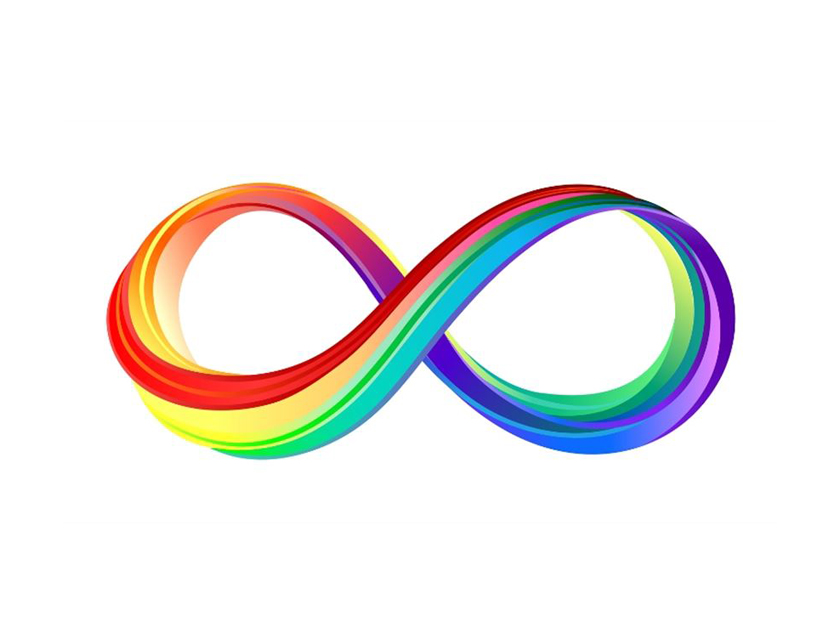World Autism Awareness Day is an internationally recognized day held annually on April 2, and it’s the kickoff to Autism Awareness Month. As a neurodivergent rabbi, a disability rights advocate, and the father of an autistic child, you might think I’d be all in. But the truth is… I’m not.
Don’t get me wrong: Autism awareness is critical. I recognize that awareness is always the first step in mobilizing action for change.
But when does that change actually happen? When do we transition away from simply raising awareness and begin to insist upon something more?
Special days, weeks, and months dedicated to awareness offer an opportunity for fun, sometimes wacky events, like 5ks and triathlons and bike rides (so much Lycra!), not to mention social media challenges and colorful swag. All of these serve the important purpose of helping to open the minds and hearts of people who aren’t yet familiar with the issues at hand (and they’re a key way for nonprofit organizations to raise much-needed funds). I’m not suggesting that we get rid of them altogether.
But for many autistic people and their families, “awareness” isn’t enough.
The founders of what was originally called Jewish Disability Awareness Month realized this when, in 2015, they changed their name to Jewish Disability Awareness and Inclusion Month, and again in 2019, when they introduced Jewish Disability Awareness, Acceptance and Inclusion Month. The Autism Society of America has done something similar, deciding in 2020 to observe Autism Acceptance Month rather than Autism Awareness Month, encouraging others to make the switch, too.
Pushing for awareness alone — without also demanding acceptance, accessibility and inclusion — also disregards the voices and choices of many self-advocates and family advocates. As Sarinah O’Donoghue writes, there’s growing support for shifting from “awareness” to “acceptance”:
“‘Acceptance’ signifies acknowledgement of our differences, while ‘awareness’ suggests that they’re merely tolerated…Moving from ‘awareness,’ which is often used in discourses on disease and illness, towards ‘acceptance,’ which is more positive, will help to destigmatize the condition and enable autistic people to speak about our condition on our terms.”
Awareness campaigns can help bring unknown or misunderstood conditions into mainstream conversation. By now, though, nearly everyone is aware of autism — and that awareness hasn’t led to an evolved societal understanding of autism or of autistic people. Importantly, it also hasn’t compelled the neurotypical masses to recognize their responsibility to adapt their own thinking about neurodiversity.
Think about it: The word “awareness” is defined as “knowledge or perception of a situation or fact.” To be aware of something is just to know that it exists, without any responsibility to grasp its nuances or challenge your own perceptions of it.
Once you’re aware of something, you may make the conscious decision to keep learning, to engage more fully, and even to work for change. But awareness doesn’t require or even request it of you. All awareness asks you to do is to know — and even then, only vaguely.
Acceptance, though, asks more of us. Acceptance is defined as “the action or process of being received as adequate or suitable, typically to be admitted into a group.” You can be aware of something without believing that it matters — but acceptance requires both recognition and respect. Getting there is a process, and awareness is just the starting point.
Awareness is only truly meaningful if it kicks off a move toward acceptance, empowerment, and full inclusion. That means talking about — and actively pursuing — greater employment opportunities, better academic supports and stronger legal protections for people with autism. It means having tough conversations about how to untangle critical but complex concerns like dual diagnoses, disability benefits, workplace accommodations, relationships, education, parental guardianship and housing. It means recognizing that many of our societal systems are broken, and then figuring out how to make them equitable for neurodivergent people.
Later this week, we’ll celebrate Passover, a holiday that represents where we’ve been (enslavement) and how far we’ve come (freedom). It’s the saga of a literal exodus that marks the start of a journey of transformation, of empowerment, of becoming. The Passover story teaches us that we don’t have to accept the status quo, but also that change is a process — sometimes a long and difficult one. And we’ll never get where we’re going if we don’t make the choice to move toward it.
If we want to live in a world where autistic people are truly accepted, understood, and fully embraced, then it’s incumbent upon us, as a society, to change course, listen to self-advocates and family advocates, and make the move from passive acknowledgment to active engagement. Awareness is only the first step toward meaningful change — and it’s long past time for us to begin the journey.
